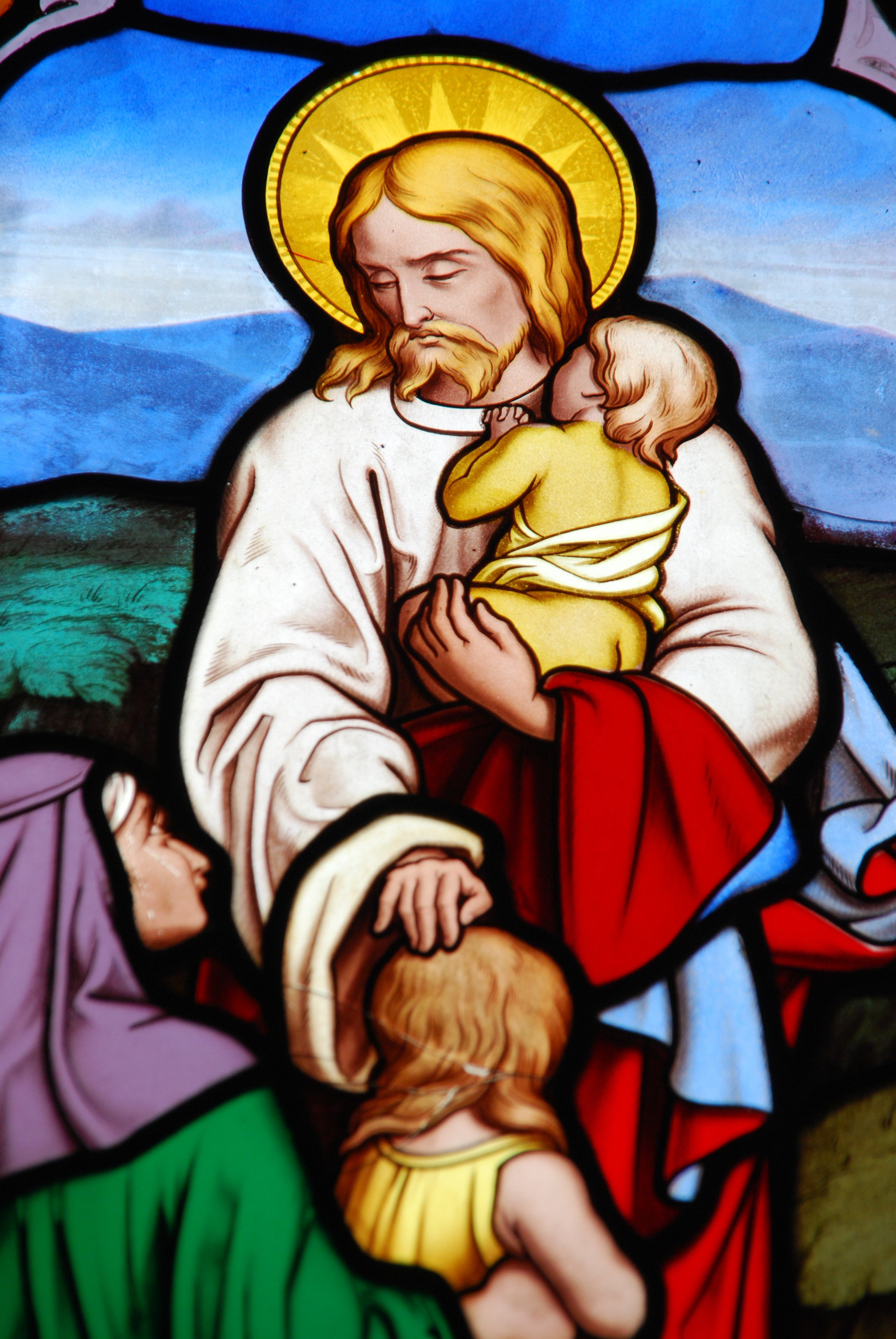Evangelical Lutheran Synod

Introduction
The Evangelical Lutheran Church in America is considered a mainline Protestant denomination. It was formed in 1988 when it merged with three North American Lutheran church bodies; the American Lutheran Church, the Association of Evangelical Lutheran Churches and the Lutheran Church in America. These three churches agreed to unite back in 1982.
The Evangelical Lutheran Church in America is a member of the National Council of Churches and the World Council of Churches.
They have a full communion relationship with other member churches of the Lutheran World Federation. The Lutheran World Federation is a communion of self-governing national and regional Lutheran church bodies around the world. Some of the churches are the Episcopal Church, the United Methodist Church, and the Reformed Church in America, the Presbyterian Church, the United Church of Christ and the Moravian Church in America.
The Lutheran World Federation, in which the Evangelical Lutheran Church in America is a member, signed the Joint Declaration on the Doctrine of Justification with the Roman Catholic Church on October 31, 1999. This declaration is an attempt to reduce the theological divide between the Roman Catholic Church and the Lutheran World Federation.
The Evangelical Lutheran Church in America has its headquarters in Chicago, Illinois.
History
The Evangelical Lutheran Church in America like most other Lutheran churches has its roots in the Protestant Reformation. Martin Luther was a German monk who disagreed with the Roman Catholic Pope.
The Protestant Reformation spread throughout Europe. The followers of Martin Luther called themselves Lutherans. Germany, Norway, Denmark, Sweden, Finland and Iceland are where many of the Reformation Lutherans spread the fastest.
The early explorers colonizing America were German, Dutch and Scandinavian Lutherans. The first settlers colonized along the Hudson River in New York and New Jersey. These first settlers spoke in their native languages and started their own churches and continued to speak and worship in their native languages. The congregations grew and formed a synod or a special council of church members and held regular meetings. Eventually these different Lutheran churches merged to become the American Lutheran Church and the Lutheran Church in America.
A wide variety of Lutheranism came out of the different movements that affected both Europe and America. The revivalist movement promoted at religious revival meeting they were dedicated to the reawakening of evangelical Christians. The Confessional movement was committed to believing, confessing and teaching the doctrines found in the Book of Concord of 1580. The fundamentalist movement was based on the literal interpretation and the strict devotion to doctrine. Pastors and worship materials were received by their homeland. The English language replaced German, Danish and Norwegian so catechisms, hymnals and formal theological training were needed.
The first major merger of Lutheran church bodies was in 1917 when three Norwegians synods joined to form the Norwegian Lutheran Church of America. The United Lutheran Church in America was formed in 1918 which made up three German synods. World War I produced the National Lutheran Commission to boost the spiritual needs of service personnel being sent into combat. 1918 also produced the National Lutheran Council to meet the needs of Lutherans missionaries to American’s in Europe. The National Lutheran Council reorganized in 1947 and expanded its work on behalf of participating churches.
Three German original churches merged to form the American Lutheran Church in 1930. They were a member of the National Lutheran Council and members of the United Lutheran Church in America.
In 1960 there was a merging between the German based American Lutheran Church, the Danish United Evangelical Lutheran Church and the Norwegian Evangelical Lutheran Church to form the American Lutheran Church. The Norwegian Lutheran Free Church dropped two of the merger but joined the American Lutheran Church in 1963.
In 1962 the Lutheran Church in America was formed when the German, Icelandic, and Slovak were the United Lutheran Church in America which merged with the Swedish Augustana Evangelical Lutheran Church, which then merged with the Finnish Evangelical Lutheran Church and the Danish American Evangelical Lutheran Church. Altogether these Lutheran Churches made up the Lutheran Church in America.
The Lutheran Church-Missouri Synod was not a member church of the National Lutheran Church or the Lutheran World Federation but they participated in the inter-confessional conversations with the Presbyterian Church and the Roman Catholic Church in 1967. The Lutheran Church-Missouri Synod is deeply rooted in confessional conservatism. They held fast to the belief in the inerrancy of the Bible.
There were some seminary professors in the Lutheran Synod who adopted the Historical Criticism, which is the belief that the Bible must be understood in the cultural context of the times it was written. This belief sent many seminary professors in exile; however a moderate movement in The Lutheran Church-Missouri Synod evolved and the Evangelical Lutherans in Mission was formed. Later this group formed the Association of Evangelical Lutheran Churches.
The Committee on Lutheran Unity was formed in January 1979 to adopt resolutions endeavoring to create a single church body. A new group was formed called the Commission for a New Lutheran Church which was started in 1984. The Evangelical Lutheran Church in America was born from this commission on January 1, 1988.
Belief
The Evangelical Lutheran Church in America believes and follows the teachings of Martin Luther, the Protestant reformer.
The Evangelical Lutheran Church in America believe the interpretation of Bible is not taken literally. The Evangelical Lutheran Church in America seminaries and colleges teach the Historical Critical method of analyzing the Bible. The Historical Critical method is an approach that looks for understanding of scriptures with reference to historical and social context. The Evangelical Lutheran Church in America believes the New Testament constantly moves between the gift given with the life, death, and resurrection of Jesus and the reality that the church at any given time looks to the return of Jesus for the achievement of justice, unity of the people of God, and the full and perfect realization of communion with God. This hope compels the church to strive to manifest this unity and communion in the here and now.
The Evangelical Lutheran Church in America believes Scriptures present a realistic picture of both the human tendency toward disunity and the unity that is possible through oneness in Christ. They believe the Bible tells what God wills, and warns of the ever present threats to a mutually accepting Christian fellowship.
The Evangelical Lutheran Church in America believes there are two Sacraments; The communion or Eucharist and Holy Baptism which also includes infant baptism. They believe the doctrine of the Real Presence which is the belief that Christ is truly present in the Eucharist. They believe Christ is present in body, soul, humanity and divinity in the Bread and Wine of Communion. The Evangelical Lutheran Church in America believes in an open communion and invites all baptized persons to receive communion in their congregations. There is a full communion agreement between the Evangelical Lutheran Church in America and the Episcopal Church.
The Evangelical Lutheran Church in America believes ministers should be trained at one of the Evangelical Lutheran Church in America seminaries and must hold a Bachelors of Arts degree, as well as a Master’s degree in divinity. They are required to learn Biblical Hebrew and Greek. They are ordained by Bishops. Women are ordained as pastors.
The Evangelical Lutheran Church in America professes belief in the “priesthood of all believers” this statement claims that all baptized persons are true ministers of the Church. The Evangelical Lutheran Church in America believes some people are called to roistered ministry, or vocations of leadership and service of the church. These roistered ministries require training and certification by local synods and receive ordination or commissioning and consecration.
The Evangelical Lutheran Church in America believes promoting the relationships between different religions are for the sake of the world, not just for the Evangelical Lutheran Church in America. They believe there should be a common confession of faith, a sharing of members worship experience, a common recognition of the Sacraments such as Baptism and the Lord’ Supper, an acceptance of ordained ministers, a common commitment to evangelism, witness, and service.
The Evangelical Lutheran Church in America participates in the ecumenical movement which is aimed at unity between different denominations on all areas. They are dependent on its understanding of Scripture and the Lutheran Confessions. They use the diverse language of Scripture for understanding of the ecumenical movement and their main goal is the unity of all people.
The Evangelical Lutheran Church in America believes the unity of God is the starting point as well as the ending point of the New Testament passages. They believe the writing in the New Testament expresses the importance of unity among all peoples. They do not believe there is any single pattern of ministry or structure.
The Evangelical Lutheran Church in America officially believes homosexuality should be welcomed within its congregations; this has been in effect since 1991.
The Evangelical Lutheran Church in America officially belief on abortion is offering community support for life, and encouraging women to explore alternatives to abortion. They state there are certain circumstances when an abortion can be morally responsible but believe that when a pregnancy presents a clear threat to the physical life of the woman then abortion is moral. They also believe when the pregnancy occurs when both parties do not participate willingly in sexual intercourse that abortion is moral as well as for as circumstances of extreme fetal abnormality that will result in severe suffering or death of an infant. The Evangelical Lutheran Church in America does claim to oppose abortion when a fetus is developed enough to live outside a uterus with the aid of reasonable technology.
Cite Article Source
MLA Style Citation:
Holstein, Joanne “Evangelical Lutheran Church in America:.” Becker Bible Studies Library Jan 2006.<https://guidedbiblestudies.com/?p=2686,>.
APA Style Citation:
Holstein, Joanne (2006, January) “Evangelical Lutheran Church in America:.” Becker Bible Studies Library. Retrieved from https://guidedbiblestudies.com/?p=2686,.
Chicago Style Citation:
Holstein, Joanne (2006) “Evangelical Lutheran Church in America:.” Becker Bible Studies Library (January), https://guidedbiblestudies.com/?p=2686, (accessed).

